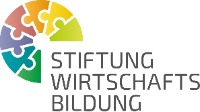Results of Austria’s students are above average. Potential for improvement among girls, social origins and migration backgrounds.
Vienna (OTS) – “Above average” is the certificate on the financial literacy knowledge of local students, which can be seen from the results of the PISA test 2022. This fact is reason to be happy, as it joins Belgium, Denmark and the Czech Republic, among others, in the top 10 of 20 participating countries. However, if you look more closely at the detailed results, you can clearly see the need for a continuation of current efforts in the area of economic and financial education. This particularly affects the poorer performance of girls and students from more precarious social backgrounds or with a migrant background.
Important impulses
In recent years, a lot of impulses have been given to improve the economic and financial knowledge of Austria’s students in the future. The Ministry of Education developed new curricula for lower secondary school (MS and lower secondary school), the Ministry of Finance designed the national financial education strategy, which is currently being implemented. At the civil society level, organizations such as the Foundation for Economic Education and its seven founding organizations (Austrian National Bank, Chamber of Labor, Chamber of Commerce, Association of Industrialists, MEGA Education Foundation, ERSTE Foundation and Innovation Foundation for Education) are joining forces for a sustainable improvement in the economic and financial education knowledge of Austrians :Inside.
“The PISA results in financial education can be viewed with both a laughing and a crying eye. Because while Austria’s students perform above average in international comparison, financial education is still passed down within the family.”
Matthias Reisinger, executive director of the Foundation for Economic Education, assesses the results published yesterday. “It is also positive that the first steps taken in Austria are going in the right direction. We now have to observe whether and how the theory being asked is transferred into practice, because youth debt is unfortunately currently experiencing an upward trend.”
said Reisinger.
Insight into the details
From the details of the PISA study it can be seen that the distribution of knowledge is broad – similar to the PISA results in mathematics and German. 13 percent of local students know how to analyze financial products or what consequences financial decisions have, making them among the top performers. However, 17 percent of Austrian students are unable to estimate a price-performance ratio or understand the connection between the level of consumption and the resulting costs. If you take a look at the increasing number of debt counseling clients under the age of 30, it shows even more that it is necessary to learn real-life business education at school.
An extraordinary confirmation of the necessity of the foundation’s work is the fact that financial education in Austria is still passed on from parents to children. Students from parents with lower socio-economic status or a migration background perform significantly worse than their colleagues in the other participating countries.
Solutions from the Foundation for Economic Education
Further effective measures are needed to ensure that Austria’s children and young people receive the necessary tools at school to handle money responsibly and to gain a realistic understanding of the economy. The “Business Education” school pilot project, which has been running since 2022, is taking a first step at 60 Austrian pilot schools so that in the future every young person with a compulsory school leaving certificate will have the necessary tools for responsible business in adult life. These 60 schools (AHS and MS) teach their own school subject “business education” or integrate the topic in interdisciplinary project weeks and are accompanied by an impact measurement over a period of four years. In addition, the first endowed professorship for business education at the JKU Linz was recently advertised, which will begin work next year.
Questions & Contact:
Sagittarius Public Results
Katharina Spitzer
Tel.: +43 664 166 06 98
Email: ks@schuetze.at
